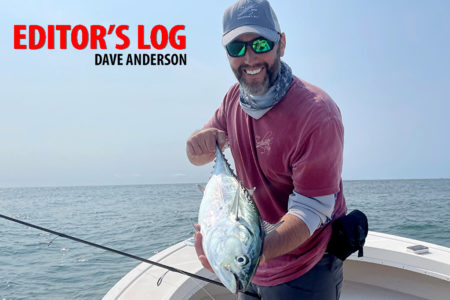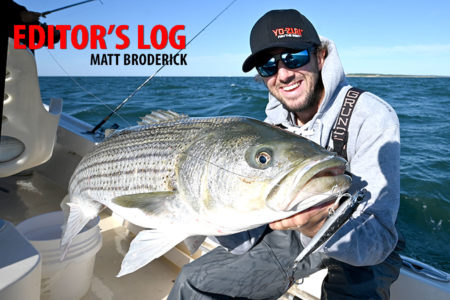The Atlantic States Marine Fisheries Commission’s (ASMFC) management boards for bluefish, summer flounder, scup, and black sea bass met jointly with the Mid-Atlantic Fishery Management Council (Council) to adopt 2022-2023 commercial and recreational harvest specifications for all four species. The Commission’s actions are final and apply to state waters (0-3 miles from shore). The Council will forward its recommendations for federal waters (3 – 200 miles from shore) to the NOAA Fisheries Greater Atlantic Regional Fisheries Administrator for final approval.
Summer Flounder: The 2021 summer flounder management track stock assessment concluded the stock was not overfished and overfishing was not occurring in 2019. Spawning stock biomass was estimated to be about 86% of the biomass target. The 2018 year class was above average at an estimated 61 million fish, the largest estimate of recruitment since 2009, while the 2019 year class is below average at 49 million fish. Based on the SSC’s recommendation, the Board and Council approved an acceptable biological catch (ABC) of 33.12 million pounds for 2022 and 2023. After accounting for expected discards, the ABC results in a commercial quota of 15.53 million pounds and a Recreational Harvest Limit (RHL) of 10.36 million pounds. These landing limits represent a 24% increase in the commercial quota and a 25% increase in the RHL from 2021 levels.
Scup: The 2021 scup management track stock assessment concluded the stock was not overfished and overfishing was not occurring in 2019. Spawning stock biomass was estimated to be about 2 times the biomass target. The assessment indicated the stock experienced very high recruitment in 2015 and below average recruitment during 2016-2019. Based on the SSC’s recommendation, the Board and Council approved an ABC of 32.11 million pounds for 2022 and 29.67 million pounds for 2023. After accounting for discards, the ABCs result in a commercial quota of 20.38 million pounds and an RHL of 6.08 million pounds in 2022, and a commercial quota of 17.87 million pounds and an RHL of 5.41 million pounds in 2023. Compared to 2021 landings limits, the new limits represent a slight decrease in the commercial quota and a minor increase in the RHL for 2022.
Black Sea Bass: The 2021 black sea bass management track stock assessment concluded the stock was not overfished and overfishing was not occurring in 2019. Spawning stock biomass was estimated to be about 2.1 times the target level in 2019 and the fishing mortality rate was 15% below the threshold level that defines an overfished condition. Based on the SSC’s recommendation, the Board and Council approved an ABC of 18.86 million pounds for 2022, which, after accounting for expected discards, results in a commercial quota of 6.47 million pounds and an RHL of 6.74 million pounds. These landings limits represent a 6% increase compared to the 2021 landing limits. The 2023 ABC was set at 16.66 million pounds, resulting in a 2023 commercial quota of 5.71 million pounds and an RHL of 5.95 million pounds.
Bluefish: The 2021 bluefish management track assessment concluded spawning stock biomass was still overfished but overfishing was not occurring in 2019. Based on the SSC’s recommendation, the Bluefish Board and Council adopted an ABC of 25.26 million pounds and 30.62 million pounds for 2022 and 2023, respectively. The 2022 ABC results in a commercial quota of 3.54 million pounds and an RHL of 13.89 million pounds, and represents a 28% increase in the commercial quota and a 67% increase in the RHL from 2021 levels. The 2023 ABC results in a commercial quota of 4.29 million pounds and an RHL of 22.14 million pounds. Historically, a portion of the total allowable landings above the expected recreational harvest have been transferred from the recreational fishery to the commercial fishery. However, because the stock is currently overfished and the recreational and commercial sectors are both anticipated to fully harvest their limits, the Bluefish Board and Council did not authorize any quota transfers.
For more information on the Commission’s actions pertaining to summer flounder, scup, and bluefish, please contact Dustin Colson Leaning, Fishery Management Plan Coordinator at [email protected] and contact Savannah Lewis at [email protected] for more information pertaining to the Commission’s actions on black sea bass.



